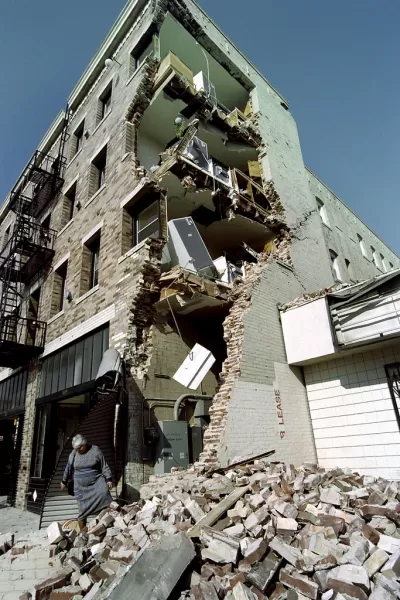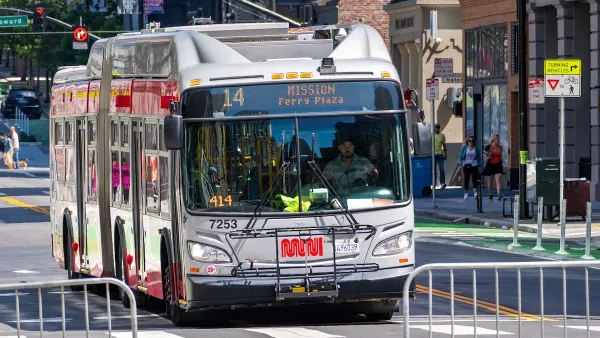A look at San Francisco's building resilience plan illustrates the pertinent need to include earthquake preparedness in resiliency planning.

Californians are intimately familiar with the threat of earthquakes. But "earthquake risk and the need for community preparedness goes far beyond California," says Adina Solomon.
Earthquake hazard should be a top consideration for cities nationwide in designing and building infrastructure, according to UCLA professor of civil and environmental engineering Scott Brandenberg. "Resilience is not about preventing damage from happening. It's about being ready so that you can recover quickly without significant disruption to society," says Brandenberg.
To better understand resiliency in the face of high-magnitude earthquakes, Solomon took a look at San Francisco's building resilience plan for what has been seen as a relevant case study. Solomon traces a decade of earthquake preparedness legislation, noting that the costly protection measures may not have been adopted without a government mandate.
"San Francisco voters also approved a $682.5 million Earthquake Safety and Emergency Response bond in March that reinforces critical infrastructure, such as 911 call centers and high-powered water systems for fire outages. Neighborhood health centers, which are mostly run by the city, are also receiving upgrades such as emergency power through the bond," Solomon writes.
To date, the coronavirus pandemic has not disrupted the millions in funding for earthquake preparedness, "but that could change as COVID-19 continues to spread across the U.S," reminds Solomon.
FULL STORY: Weaving earthquake risk into city resiliency plans

Planetizen Federal Action Tracker
A weekly monitor of how Trump’s orders and actions are impacting planners and planning in America.

Restaurant Patios Were a Pandemic Win — Why Were They so Hard to Keep?
Social distancing requirements and changes in travel patterns prompted cities to pilot new uses for street and sidewalk space. Then it got complicated.

Map: Where Senate Republicans Want to Sell Your Public Lands
For public land advocates, the Senate Republicans’ proposal to sell millions of acres of public land in the West is “the biggest fight of their careers.”

Maui's Vacation Rental Debate Turns Ugly
Verbal attacks, misinformation campaigns and fistfights plague a high-stakes debate to convert thousands of vacation rentals into long-term housing.

San Francisco Suspends Traffic Calming Amidst Record Deaths
Citing “a challenging fiscal landscape,” the city will cease the program on the heels of 42 traffic deaths, including 24 pedestrians.

California Homeless Arrests, Citations Spike After Ruling
An investigation reveals that anti-homeless actions increased up to 500% after Grants Pass v. Johnson — even in cities claiming no policy change.
Urban Design for Planners 1: Software Tools
This six-course series explores essential urban design concepts using open source software and equips planners with the tools they need to participate fully in the urban design process.
Planning for Universal Design
Learn the tools for implementing Universal Design in planning regulations.
Heyer Gruel & Associates PA
JM Goldson LLC
Custer County Colorado
City of Camden Redevelopment Agency
City of Astoria
Transportation Research & Education Center (TREC) at Portland State University
Camden Redevelopment Agency
City of Claremont
Municipality of Princeton (NJ)





























